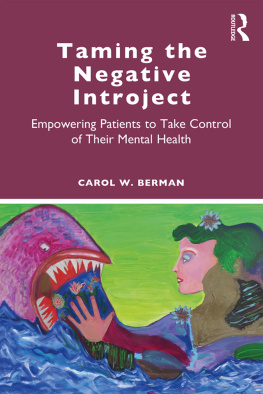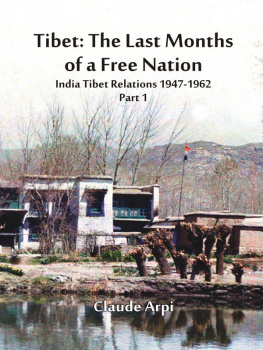Botto. - India, Ceylon, Nepal, Tibet. 1
Here you can read online Botto. - India, Ceylon, Nepal, Tibet. 1 full text of the book (entire story) in english for free. Download pdf and epub, get meaning, cover and reviews about this ebook. City: Torino, year: 1988, publisher: UTET, genre: Science fiction. Description of the work, (preface) as well as reviews are available. Best literature library LitArk.com created for fans of good reading and offers a wide selection of genres:
Romance novel
Science fiction
Adventure
Detective
Science
History
Home and family
Prose
Art
Politics
Computer
Non-fiction
Religion
Business
Children
Humor
Choose a favorite category and find really read worthwhile books. Enjoy immersion in the world of imagination, feel the emotions of the characters or learn something new for yourself, make an fascinating discovery.
- Book:India, Ceylon, Nepal, Tibet. 1
- Author:
- Publisher:UTET
- Genre:
- Year:1988
- City:Torino
- Rating:5 / 5
- Favourites:Add to favourites
- Your mark:
- 100
- 1
- 2
- 3
- 4
- 5
India, Ceylon, Nepal, Tibet. 1: summary, description and annotation
We offer to read an annotation, description, summary or preface (depends on what the author of the book "India, Ceylon, Nepal, Tibet. 1" wrote himself). If you haven't found the necessary information about the book — write in the comments, we will try to find it.
Botto.: author's other books
Who wrote India, Ceylon, Nepal, Tibet. 1? Find out the surname, the name of the author of the book and a list of all author's works by series.
India, Ceylon, Nepal, Tibet. 1 — read online for free the complete book (whole text) full work
Below is the text of the book, divided by pages. System saving the place of the last page read, allows you to conveniently read the book "India, Ceylon, Nepal, Tibet. 1" online for free, without having to search again every time where you left off. Put a bookmark, and you can go to the page where you finished reading at any time.
Font size:
Interval:
Bookmark:

In this book, Dr. Carol W. Berman describes how to help patients control the self-sabotaging element of their unconscious minds, often called the punitive superego, the negative introject, or the hurt child. The negative introject can provoke horrendous acts against the self, ranging from suicide and addiction to making hurtful comments to loved ones. The role of the psychotherapist is to make the unconscious conscious, allowing the sufferers to take back control of their actions.
Dr. Berman uses case studies to personalize the theory and demonstrate how the negative introject can take hold and impact the lives of those suffering from a variety of illnesses and disorders, including depression, anxiety, eating disorders, obsessive-compulsive disorder, and bipolar disorder. Each chapter concludes with a guide demonstrating how the negative introject was tamed in each case, showing the reader that the negative introject can be identified and then brought into some control.
This book is essential reading for all kinds of psychotherapists, from psychiatrists to social workers and psychologists, as well as all those who wish to identify the negative introject, and help tame it.
Carol W. Berman , M.D., is a clinical assistant professor of psychiatry at N.Y.U. Langone Medical Center. This is Dr. Bermans fourth book. She is also the author of 100 Questions and Answers About Panic Disorder, Personality Disorders, and Surviving Dementia: A Clinical and Personal Perspective .
The creator, writer, and psychiatrist, Carol Berman has done it yet again. Written in such a creative yet practical way, this book is a must for any practitioner who is looking to help patients or themselves understand and move past negativity. The clinical case examples are so varied in terms of the pathologies presented, yet spot on. Her easily broken-down tables and charts make this the best guide for those who are looking to build clinical strategies on a tight schedule. Cant wait to use these strategies with my patients!
Asha D. Martin, M.D., N.Y.U. Langone Medical Center
Dr. Carol Berman breathes new life into the old psychoanalytic term, the negative introject. Negative introjects are unconscious, self-defeating thoughts that often stem from disturbing messages received in childhood, which interfere with mental health, happiness, and success. Dr. Berman illustrates with colorful case reports how negative introjects underlie many common psychiatric disorders, such as anxiety, depression, eating disorders, obsessive-compulsive disorder, hypochondriasis, posttraumatic stress disorder, and body dysmorphic disorder. She describes ways to diminish these negative perceptions with multiple modalities, including medication and psychotherapy. The book includes tables with practical suggestions on ways to counteract negative introjects with positive ideas and behaviors, such as exercise, listening to music, interacting with pets, conversations with positive people, and meditation. Dr. Berman seamlessly blends psychoanalytic thought with behavioral psychology and psychopharmacology in a clear, straightforward manner, which only a seasoned psychiatrist with decades of clinical experience could do. This book is a must read for patients and clinicians alike!
Barbara Bartlik, M.D., Psychiatrist, private practice, New York, New York; Distinguished Fellow, American Psychiatric Association; Assistant Clinical Professor of Psychiatry, Weill Cornell Medical College; past President, Womens Medical Association of New York City
What an interesting and insightful book! Dr. Bermans Taming the Negative Introject is truly a cogent and a comprehensive guide to psychological defense and confronting the negative introjection in the patient. She does this with wit, wisdom, and profound sensitivity. You know she wrote this book based on her long clinical insight and her service with her patients. This is a beautifully written and organized book with a great reservoir of information and deep sensitivity and empathy for her patients. This invaluable book provides us with the information and knowledge we need to make rational and healthy choices.
Jose P. Vito, M.D., DFAPA , Clinical Assistant Professor, N.Y.U. School of Medicine; Forensic Telepsychiatry, Central New York Psychiatric Center; Director, Medical Education and Training, Outpatient Clinic, Office of Mental Health State of New York; past President, New York Psychiatric Society District Branch of the APA; assembly representative of New York, American Psychiatric Association
Empowering Patients to Take Control of Their Mental Health
Carol W. Berman

First published 2019
by Routledge
52 Vanderbilt Avenue, New York, NY 10017
and by Routledge
2 Park Square, Milton Park, Abingdon, Oxon, OX14 4RN
Routledge is an imprint of the Taylor & Francis Group, an informa business
2019 Carol W. Berman
The right of Carol W. Berman to be identified as author of this work has been asserted by her in accordance with sections 77 and 78 of the Copyright, Designs and Patents Act 1988.
All rights reserved. No part of this book may be reprinted or reproduced or utilised in any form or by any electronic, mechanical, or other means, now known or hereafter invented, including photocopying and recording, or in any information storage or retrieval system, without permission in writing from the publishers.
Trademark notice : Product or corporate names may be trademarks or registered trademarks, and are used only for identification and explanation without intent to infringe.
Library of Congress Cataloging-in-Publication Data
A catalog record for this book has been requested
ISBN: 978-1-138-58458-7 (hbk)
ISBN: 978-1-138-58459-4 (pbk)
ISBN: 978-0-429-50592-8 (ebk)
Typeset in Dante and Avenir
by Apex CoVantage, LLC
To Marty and Barbara for their unending support
About a year ago, Dr. Berman and I were sitting and talking about patients. The subject turned to the pains that many of those who see us experience, so much of which is caused by the negative ghosts that haunt their heads: those voices in there that criticize, degrade, deny opportunity, belittle, and see only the worthless and bad in the person.
I commented, Oh, thats what we in the Modern Analytic school call the Negative Introject. How would you define that? she asked, and I responded: The piece of an early critical voice that we took in an early developmental stage. We believe that they are our own thoughts, but in reality, it is an alien implant incorporated into us.
With that, Dr. Bermans curiosity was fully aroused. Her fine research skills went into action, accompanied by her collectors instinct. It inspired me to go back and locate when and by whom I had first become aware of the phenomena of the negative introject and of the important role it plays in our work.
In 1992, Dr. Lou R. Ormont wrote a book called The Group Therapy Experience: From Theory to Practice. Dr. Ormont, a modern analyst, had been at the forefront of advocating the value of group. As he did so, he formulated new methods, new concepts, and the reworkings of old ones. In his chapter titled What the Therapist Feels, he delineates as an unconscious block, what as therapists we must recognize before we can have insights on the path to formulating treatment.
Font size:
Interval:
Bookmark:
Similar books «India, Ceylon, Nepal, Tibet. 1»
Look at similar books to India, Ceylon, Nepal, Tibet. 1. We have selected literature similar in name and meaning in the hope of providing readers with more options to find new, interesting, not yet read works.
Discussion, reviews of the book India, Ceylon, Nepal, Tibet. 1 and just readers' own opinions. Leave your comments, write what you think about the work, its meaning or the main characters. Specify what exactly you liked and what you didn't like, and why you think so.











